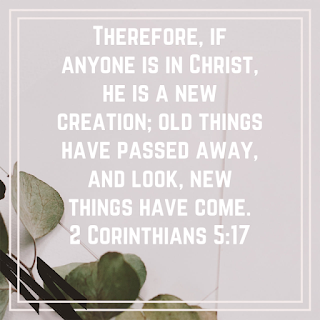Chocolate : BitterSweet
I have mixed feelings about Halloween. On one side, I think of the celebration of the reality of death (like Día de los Muertos), cute little kids and animals in costumes, parties, and exercising my creativity through costuming. On the other side, there are those second-rate horror films, haunted houses, and caricatured versions of real evils present in our lives (Eph 6.12).
I feel the same about chocolate. I love it. As I saw on Pinterest the other day, "Chocolate doesn't ask silly questions. Chocolate understands." As women, it is understood we have a deeply set desire - craving - for chocolate. There is even a study that suggests a scientific reason for this (explained in an article here).
I feel the same about chocolate. I love it. As I saw on Pinterest the other day, "Chocolate doesn't ask silly questions. Chocolate understands." As women, it is understood we have a deeply set desire - craving - for chocolate. There is even a study that suggests a scientific reason for this (explained in an article here).
 |
| Source: etsy.com via Katie on Pinterest |
When was the last time you visited western Africa - maybe Ivory Coast, or Ghana?
Chances are, the cocoa beans used in your chocolate bar, those in the candies you hand out for Halloween, and those in the cake you bought at the bakery the other day came from one of these regions. And yet, unless you bought chocolate clarified as Fair Trade or organic (explained in this article here), it very well may have contained beans harvested by slave labor - child slave labor. As the video available on YouTube, "Chocolate - the Bitter Truth," explains, young children are kidnapped from Burkina Faso and smuggled across the border to work as cocoa bean harvesters. This is an atrocity in itself, but the fact that they are also not educated dooms them into a circle of lack of opportunity and desperation, which can very well continue into adulthood.
"I heard that my son is suffering. Even to feed himself people have to help him." - Mother from Burkina Faso about her abducted son working as a cocoa bean harvester/slave in "Chocolate - the Bitter Truth"
My own thoughts - despair for these children. Who is looking after them? Who can they ask questions about life, who do they trust who is fighting for their safety, health, and well-being? Not only are they not afforded basic human rights, they are denied a loving family atmosphere and have become victims of a system fueled by our very own love of sweet treats. From my own religious beliefs, we are called to "look after orphans and widows in their distress" (James 1.27) and to
Speak up for those who cannot speak for themselves, for the rights of all who are destitute.
Speak up and judge fairly; defend the rights of the poor and needy. (Prov. 31.8-9)
Just as with clothing and electronic manufacturing, it is important to realize the sourcing of our chocolate. Here are some resources to understand how you - we, as relatively wealthy consumers on this planet - affect the international cocoa bean market.
- Chocolate - the Bitter Truth - BBC video available on YouTube to understand the situation and system of production
- Slave-Free Chocolate - A blog article about fair-trade chocolate. This site has a list of chocolate companies and their commitment to fair-trade and organic products, as well as some links to further information
- The Dark Side of Chocolate - a documentary about chocolate production and slave labor. In the U.S. it looks like the closest at this point we may come to watching this is its pending availability through Al Jazeera, but we'll see.
- "Choose FairTrade Chocolates This Halloween!" - a short article on the GOOD website
- "The Sweet Story of Divine Chocolates" - an encouraging story of a chocolate company co-owned by the cocoa farmers
- A List of Manufacturer's Responses to Child Slavery on Cocoa Farms
- International Cocoa Initiative - "ICI’s mission is to 'oversee and sustain efforts to eliminate the worst forms of child labour and forced labour in the growing and processing of cocoa beans and their derivative products.'” (from website)
- Slave Free Chocolate - an up-to-date blog sharing chocolate concerns and updates (check out their Sept. 12, 2012 featured article, "Reverse Trick or Treating Time.")
As mentioned earlier, unless you buy fair-trade, organic, or chocolate with verified sourcing, your chocolate product could very well contain child slave labor. This being stated, the issue is not just us as ignorant consumers. In fact, I am sure you would not buy chocolate if you knew for certain child labor went into it. The African countries, farmer co-ops, UN, and other aid organizations are working to keep bean traders and farmers more accountable, and to prosecute the child abductors.
As for our own involvement, it may mean spending $2.49 for a chocolate bar instead of two for $.99. Quite honestly, it will probably taste better anyway. And while I will let you put this financial sacrifice in the correct perspective on your own, let us remember that we are stewards of our wealth, intelligence, and health. There is opportunity to bless others around the world through respecting their work as good, honest farmers, while enjoying their delicious product of that sweet chocolate.

Comments
Post a Comment